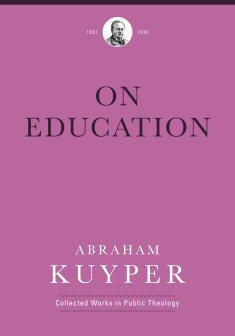Christian Worldview
Herman Bavinck
Translators and Editors: Gray Sutanto, James Eglinton, and Cory Brock
Crossway
ISBN 9781433563195
Hbk, 144pp,
The term worldview was first introduced to the Christian world by Abraham Kuyper, who drew upon the insights of James Orr. Unfortunately, the term has become abused, overused and misused.
This book by Herman Bavinck (1854-1921), Kuyper’s successor as professor of theology at the Free University, is a welcome addition to the worldview literature, particularly as it was written well before the term had fallen into a theoretical trap. This then is not a summary of Christian thinking and theology as much Christian worldview material seems to be today - for some then the title may cloud the content. What it is is an apologetic for an organic Christian perspective rooted in a creator God, against the arid, one-dimensional worldviews around at the turn of the nineteenth century.
The editors’ introduction serves the volume well and places Bavinck’s work in its historical and philosophical milieu.
Likewise, in his introduction, Bavinck places his work in context. He writes at a time when science and technology were expected to make religion superfluous (p. 25), yet there was an increase in interest in new religions, in a ‘this -worldly’ ‘world religion’ (p. 26).
Bavinck identifies three key questions, which he goes on to examine in the subsequent chapters.
There are:
What is the relation between thinking and being;
between being and becoming;
and between becoming and acting.
It is only Christianity, Bavinck argues, that preserves the harmony between them and ‘reveals a wisdom that reconciles the human being with a God and, through this, with itself, with the world and with life’. (p. 29).
1. Thinking and being
In the first chapter Bavinck examines epistemological concerns and the relation between subject and object. Even though Bavinck was professor of theology he shows here his awareness of philosophy. Philosophers are discussed rather than theologians.
Here he discusses nominalism, idealism and voluntarism, and shows how they fail to articulate a coherent view. He emphasises that it is only Christianity that can adequately describe things as they are. He goes further:
‘No matter how we look at it, the concept of truth and science - if we think consistently and without prejudice - brings us to Christianity.’ (p. 45).
2. Being and becoming
In the second chapter, once again Bavinck places different philosophical and scientific perspectives alongside Christianity and shows them to be defective. In particular, here he focuses on the mechanical worldview. He makes the interesting observation that
‘Those who have abandoned the mechanical worldview as untenable continue to honour it secretly as the scientific ideal.’ (p. 69)
He sees Christianity as an organic worldview - something that a Kuyper also maintained. For which Kuyper was occasionally criticised as being reliant on idealism, however, the critics seem to miss that it is also a biblical metaphor (cf John 15 and the vine). For Bavinck:
‘According to the this organic worldview, the world is in no sense one-dimensional; rather it contains a fullness of being, a rich exchange of phenomena, a rich multiplicity of creations.’ (p. 71-72).
The mechanistic worldview, unlike the organic worldview, fails to explain development. The mechanistic worldview fails ultimately because it has no answers to the origin and development of life:
‘It is only provided by the Christian confession that God is the Creator and that his glory is the goal of all things. Everything is subservient to this. Everything is directed to it.’ (p. 83)
3. Becoming and acting
In the final chapter, the issues that Bavinck addresses is one of freedom and ethics. He points out that:
‘This objective reality of logical, ethical, and aesthetic norms points back to a world order that can have its origins and existence only in God almighty.’ (p. 106)
And goes on to maintain
‘If the logical, ethical, and aesthetic norms deserve absolute validity; if truth, goodness, and beauty are goods worth more than all the treasures of this world, then they cannot thank the human—for whom law was made—for their origins.’ (p. 108)
Christianity thus provides the only coherent and consistent framework for life. The other perspectives Bavinck ably shows are incoherent and cannot account for the diversity of creation, among other things. This is hardly surprising as they deny or ignore the Creator that created the creation.
This book is a very welcome addition to the rapidly expanding corpus of Bavinck in English.
My thanks to Crossway for the review copy in exchange for a fair review.






